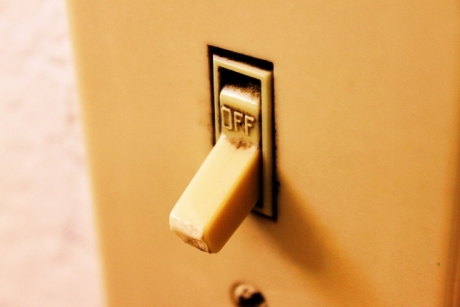Plan to switch off air-con, pool pump and hot water remotely to shore up power grid
The Advertiser
Chris Russell
15 April 2021Being able to turn off solar isn’t enough. The Government now wants electricity retailers to be able to switch off your air-con and pool pumps.
Household air conditioners, pool pumps, hot water systems and electric vehicle chargers would be switched off remotely when the power grid is under pressure, under changes planned by the State Government.
The appliances could also be switched on externally – rather than by the householder – when there is not enough demand in the system, the Energy and Mining Department says.
Reforms are needed because of the impact of rooftop solar but would apply to all households.
Compulsory new requirements for these energy-hungry appliances to have technical capability for remote control have been agreed by the nation’s energy ministers but South Australia wants to move faster than other states.
“While SA supports a national approach … national progress does not match the growing significance of minimum demand and peak demand challenges in SA,” the department says.
Energy and Mining Minister Dan van Holst Pellekaan said the changes aimed to cut costs for households which opted in to their retailer using the remote controls.
“These are important measures to deliver lower bills for households which choose to participate, by rewarding them with access to the cheapest available electricity,” he said.
“It will be completely up to consumers whether they accept offers from retailers, such as cheaper power for heating water or charging electric cars when there’s more abundant renewable energy available in the grid.”
The changes follow new State Government rules that all new solar systems must be capable of being switched off remotely. This was first applied on March 14 when more than 10,000 SA home solar systems were stopped from exporting power.
The new reforms look at the other side of the equation – giving electricity system operators more control of the demand side.
The department acknowledged changes would add cost to appliances and reduce the range of models available.
Modelling for the government puts these costs at $27m to $45m but says benefits would be $70m to $95m, because of a reduced need to upgrade the electricity grid.
In saying how changes would be implemented the department said: “It is proposed that the Energy Products (Safety and Efficiency) Act 2000 will be used to create an offence for offering for sale air conditioners, electric vehicle chargers and pool pump controllers, that do not comply with an energy performance standard relating to demand response capability.”
The Department said energy ministers nationally have already agreed that water heaters sold from 2023 must be capable of being turned off (emergency load shedding).
It says the Department’s preferred option was for SA to have “early adoption of the energy ministers decision” and to go further – with inclusion of capability for bigger hot water tanks to be switched on to increase demand.
On radio, Mr Van Holst Pellekaan said he had “no intention” of making the new standards compulsory and that, at this stage, the Government was only interested in trialling the technology.
Targeting only select appliances would avoid turning off entire households during rolling blackouts of suburbs.
It is expected households with solar could continue to power their appliances behind the meter.
The department is consulting industry on when to introduce the changes, with a range of dates between July this year and 2025. Different start dates may be used for different appliances. They would be fitted with devices to dial down use to half or three-quarter power or to be switched on and off.
Companies had until last week to make submissions to the department on the reforms.
The AdvertiserSo, there you have it. A state that was once a manufacturing and mineral processing powerhouse, reduced to rationing electricity for households, simply because it blew up its coal-fired power plants (the ones built by Tom Playford) and remains fixated on the delusion that it can run itself entirely on sunshine and breezes (with the odd mega-battery thrown in). And why?
Well, it’s moments like this – a setting Sun and dead calm weather – from here on, the moment when South Australians will have their ACs, pool pumps, and other useful appliances shut off by a wind and solar obsessed government that simply can’t provide enough electricity to power to its State. Welcome to you wind and Sun ‘powered’ future!
- Forums
- Science & Medicine
- Welcome to The Green Nightmare
Plan to switch off air-con, pool pump and hot water remotely to...
-
- There are more pages in this discussion • 468 more messages in this thread...
You’re viewing a single post only. To view the entire thread just sign in or Join Now (FREE)







